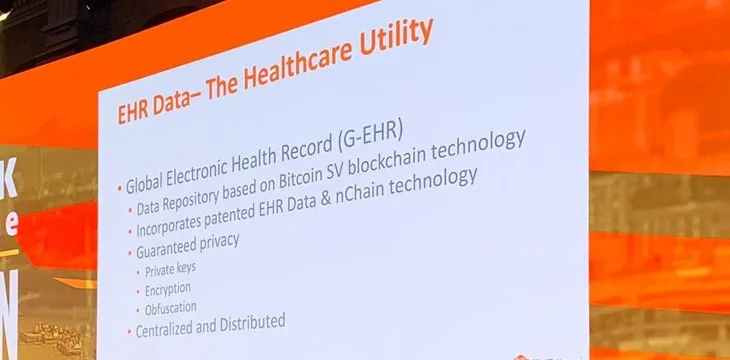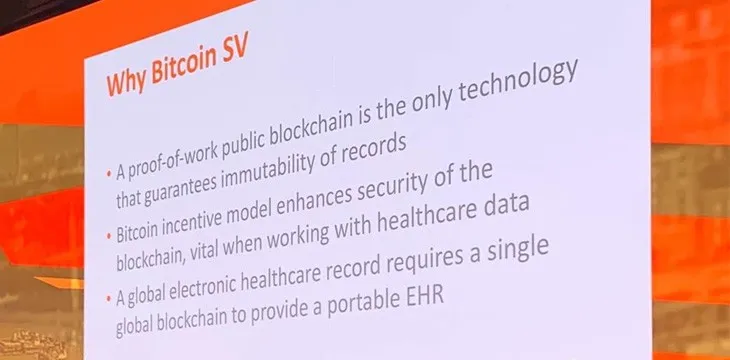|
Getting your Trinity Audio player ready...
|
EHR Data Inc. has partnered with nChain to digitize medical data, and for the first time, give patients ownership of their healthcare data. The Texas-based company, a subsidiary of the National Health Coalition (NHC), just made the groundbreaking announcement during the CoinGeek London Conference—it will work with nChain to migrate NHC healthcare data to Bitcoin SV (BSV).
The opioid crisis has become one of the biggest of our time, with up to 250 deaths registered daily in the U.S. alone. One of the key factors behind this is the lack of interoperability in medical records, with most of the data locked up in massive silos owned and operated by big companies. Physicians end up prescribing drugs with no prior consideration of a patient’s medical history. The new system, known as the global electronic healthcare record (G-EHR), will get rid of this, Chief Clinical Officer Cheryl Jorgenson told the audience.

The system, which is currently in a proof-of-concept stage, will consolidate the data silos into one, allowing for global interoperability. Patients will have the ability to dictate who can access their medical data. With this, it will be possible to have patient loyalty rewards such as incentivizing them to live in a healthy manner.
EHR Data could have easily developed a private database which could contain these medical records. However, it would miss key elements that a public blockchain like BSV has including trust and immutability, Ron Austring, the president of Daedalos Inc. explained. Working with nChain on this venture was a no-brainer for the firm as nChain has established itself as an expert in enterprise blockchain solutions, he added. The Metanet was also a key focus for the project as it will enable the actualization of the vision.

The G-EHR will incorporate cutting-edge patented technology from both EHR Data and nChain. It will guarantee the patients of their privacy, through the use of private keys and encryption, obfuscating the patients’ personal profile while sharing crucial data.

The two companies are also working on a global workflow engine (G-WFE) to provide a single universal source of truth. It will rely on the Bitcoin SV blockchain to provide real-time financial processes and the BSV token to settle payments. With 4.2 billion prescriptions made annually in the U.S. alone, the system is expected to add up to 32 billion transactions to the BSV network annually.

 08-06-2025
08-06-2025 





